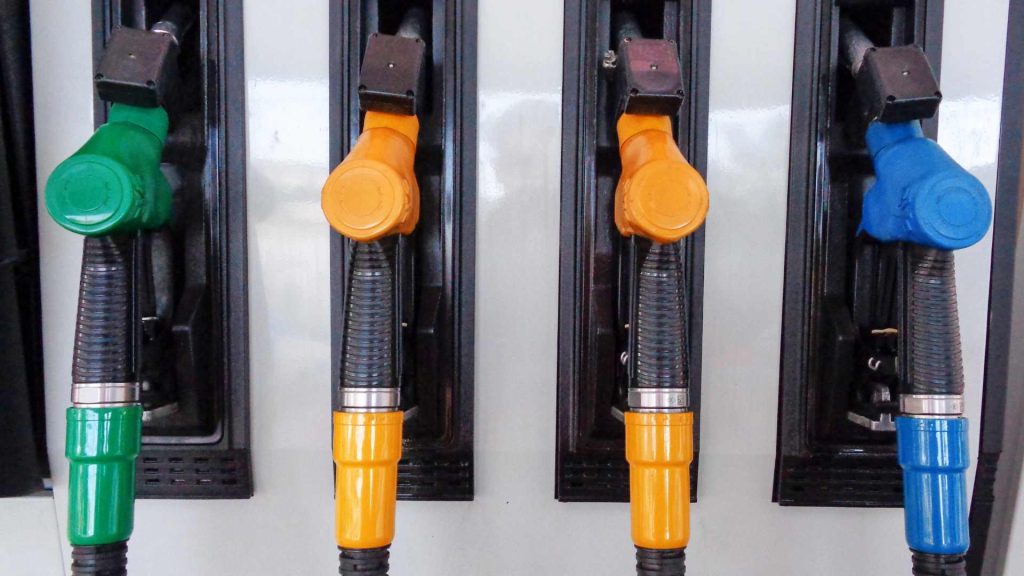
How Do I Track Fuel Expenses for a Fleet?
How Do I Track Fuel Expenses for a Fleet? Managing fuel expenses is a critical component of fleet operations, as fuel costs often represent a

Understanding Fleet Fuel Options
Selecting the right type of fuel is crucial for fleet managers aiming to optimize costs, efficiency, and environmental impact. Various fuel options are available, each with unique benefits and drawbacks. This guide explores the most common fuels used in fleet vehicles, helping businesses make informed decisions about their fueling strategies. The right fuel choice can significantly impact operational efficiency, long-term expenses, and compliance with government regulations.
Gasoline is one of the most commonly used fuels in fleet vehicles, particularly for smaller cars, vans, and light-duty trucks. It remains a preferred choice for businesses that require reliable and widely accessible fueling solutions.
Advantages:
Disadvantages:
Best for:
Diesel fuel is favored for medium and heavy-duty vehicles due to its efficiency and power output. Diesel engines operate with higher compression ratios, which makes them more fuel-efficient than gasoline engines.
Advantages:
Disadvantages:
Best for:
CNG is gaining popularity as an environmentally friendly alternative to traditional fuels. It is stored under high pressure and is primarily composed of methane, which burns cleaner than gasoline or diesel.
Advantages:
Disadvantages:
Best for:
LNG is another alternative fuel option, primarily used in heavy-duty applications. Unlike CNG, LNG is stored at cryogenic temperatures in liquid form, which increases its energy density and extends vehicle range.
Advantages:
Disadvantages:
Best for:
Propane is a versatile fuel that offers cost savings and cleaner emissions. It is widely used in fleets that prioritize sustainability without transitioning to full electrification.
Advantages:
Disadvantages:
Best for:
Electric vehicles (EVs) and hybrid-electric fleets are becoming increasingly popular due to sustainability and long-term cost savings. The rise of commercial EVs and government incentives has made electrification a viable option for many fleet managers.
Advantages:
Disadvantages:
Best for:
Hydrogen fuel cell vehicles are an emerging option for fleets seeking zero-emission alternatives. They use hydrogen to generate electricity, producing only water as a byproduct.
Advantages:
Disadvantages:
Best for:
Choosing the Right Fuel for Your Fleet
When selecting a fuel type for your fleet, consider the following factors:
Fleet Gas Co provides expert insights on optimizing fuel efficiency, managing costs, and selecting the right fueling solutions. Stay informed with the latest industry trends by visiting gasscoinc.net.

How Do I Track Fuel Expenses for a Fleet? Managing fuel expenses is a critical component of fleet operations, as fuel costs often represent a

Technology Solutions for Fuel Management The Role of Technology in Fuel ManagementFuel costs are one of the largest expenses for fleet operations, making efficient fuel

Maintenance Tips for Optimal Fuel Performance The Importance of Proper Maintenance for Fuel EfficiencyRegular vehicle maintenance is one of the most effective ways to improve

Impact of Fuel Prices on Fleet Operations How Fuel Price Fluctuations Affect Fleet ManagementFuel costs are one of the largest operational expenses for fleet managers,

Cost Management for Fleet Fueling Understanding Fleet Fuel Costs and Their ImpactFuel expenses are one of the most significant costs for fleet operations, often accounting

Fuel Efficiency Strategies for Fleet Vehicles Maximizing Fuel Efficiency in Fleet OperationsFuel efficiency is a crucial factor for fleet managers seeking to reduce operational costs